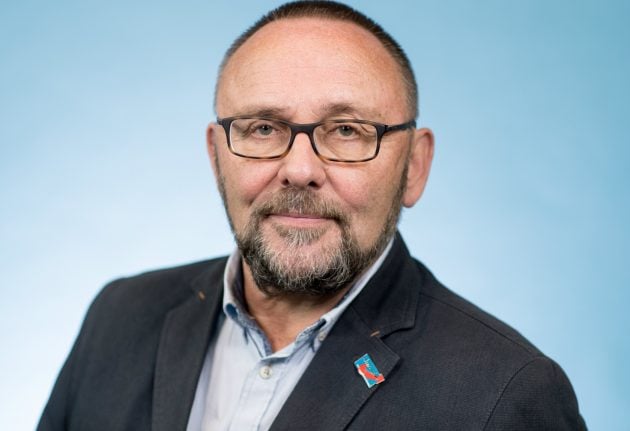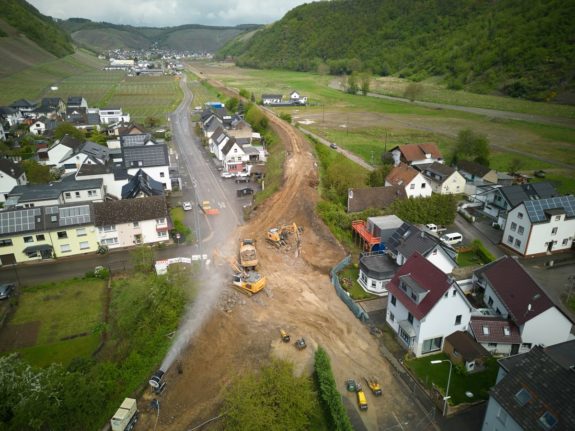Frank Magnitz, leader in Bremen of the anti-immigration populist party Alternative for Germany (AfD), was assaulted in the city centre on Monday afternoon.
“Given the victim's work, we believe that this is a politically motivated act,” police said.
SEE ALSO: Probe underway after Bremen AfD leader seriously injured in targeted gang attack
The AfD party published a photo of Magnitz unconscious on a hospital bed, his face bleeding and swollen with a gash on his forehead.
It said three masked men had carried out the attack.
“They hit him with a piece of wood until he was unconscious and then kicked him on the ground,” a statement from the party said, adding that a construction worker had intervened to stop the assault.
“Today is a dark day for democracy in Germany.”
Magnitz, who is still in hospital, told national news agency DPA that he neither saw the attackers nor heard them say anything.
“I will in any case be more careful when walking through the area,” he said, adding that doctors were likely to keep him in hospital until the weekend.
AfD leader Jörg Meuthen tweeted that Magnitz was “beaten almost to death” in a “cowardly and sickening” attack.
Merkel's spokesman Steffen Seibert wrote on Twitter that the “brutal attack” was “to be condemned sharply”.
“Hopefully the police will succeed in catching the perpetrators quickly,” he wrote.
Der brutale Angriff auf den Bundestagsabgeordneten Frank #Magnitz in Bremen ist scharf zu verurteilen. Hoffentlich gelingt es der Polizei rasch, die Täter zu fassen.
— Steffen Seibert (@RegSprecher) January 8, 2019
Foreign Minister Heiko Maas also said there was “absolutely no justification” for the use of violence despite political differences.
“Anyone who carries out such a crime must be punished.”
Multiple attacks
The AfD's entry into parliament in September 2017 with 13 percent of the vote unleashed a political earthquake in Germany.
With their anti-immigration rhetoric and their challenge of post-WWII Germany's culture of atonement, the party's leaders and MPs have been knocking over taboo after taboo in the country's political arena.
While they have won fans in some quarters and are projected to make gains in European elections in May as well as three regional polls in the former communist east later this year, they have also sparked furore and become a target of attack.
Last week, an explosive device detonated in a rubbish bin damaged an AfD office in Saxony. Three suspects were detained.
And last weekend in Lower Saxony, the home of a local AfD politician was targeted with graffiti and a party office was attacked with a paint bomb.
Since mid-December, German police have recorded eight attacks against AfD offices.
Party co-chiefs Alexander Gauland and Alice Weidel called the latest assault the “result of the incitement to hatred by politicians and media against us”.
Amid the heated atmosphere, Johannes Kahrs, an MP from the Social Democrats, junior partners in the ruling coalition, said “violence is never acceptable” and that “extremism in any form is rubbish”. He wished Magnitz a quick recovery.
German President Frank-Walter Steinmeier wrote to Magnitz to express his “consternation” over the attack.”Our democracy needs controversies, exchanges with arguments, even when this gets heated. But we must never allow political violence – regardless from which side,” he wrote, according to DPA.
Cem Ozdemir of the opposition Greens party said he hoped those responsible could be “found and convicted soon” and that, even against a far-right party, “nothing justifies violence”.
“Those who fight hate with hate only allow hate to win in the end,” said the politician of Turkish origin.



 Please whitelist us to continue reading.
Please whitelist us to continue reading.
Member comments